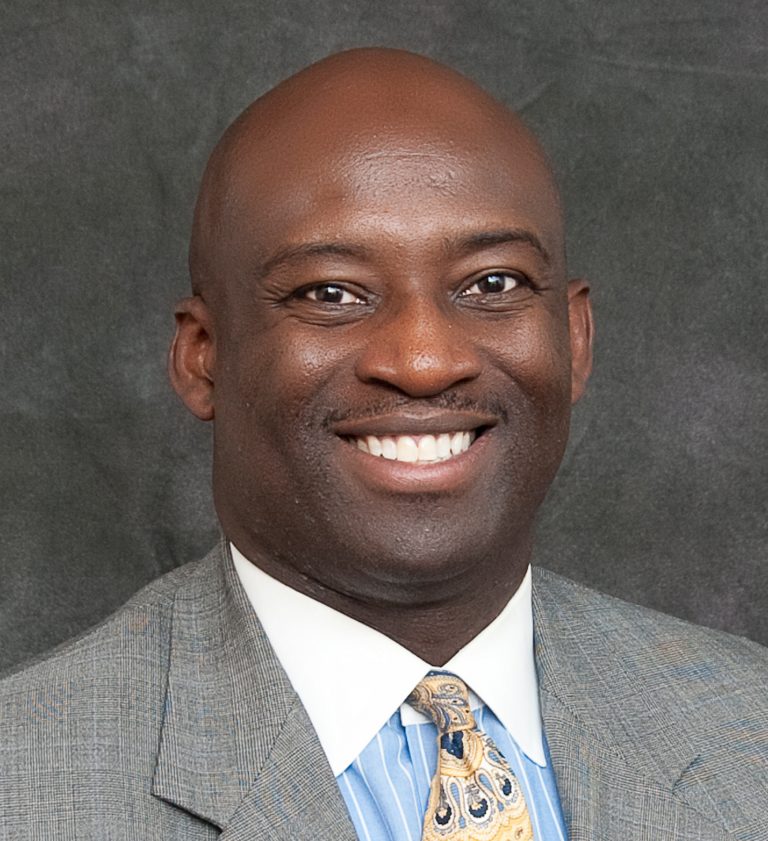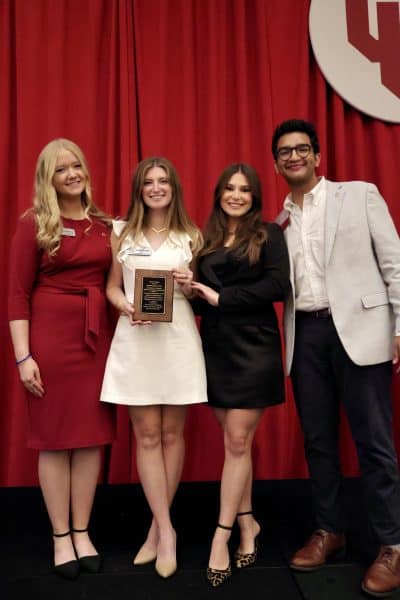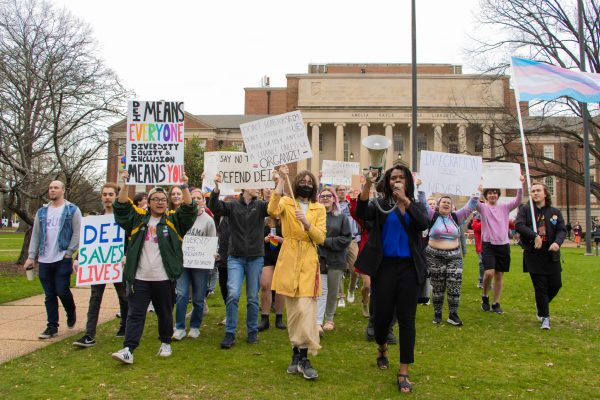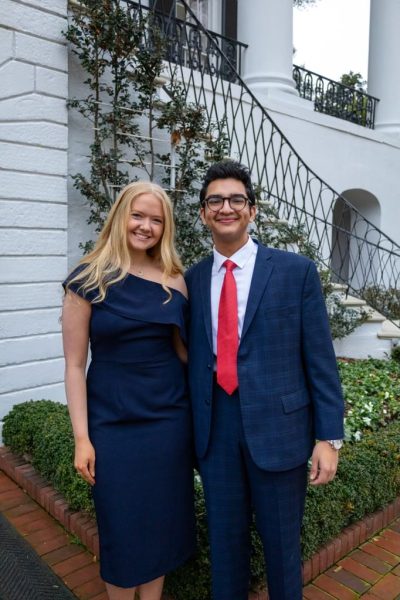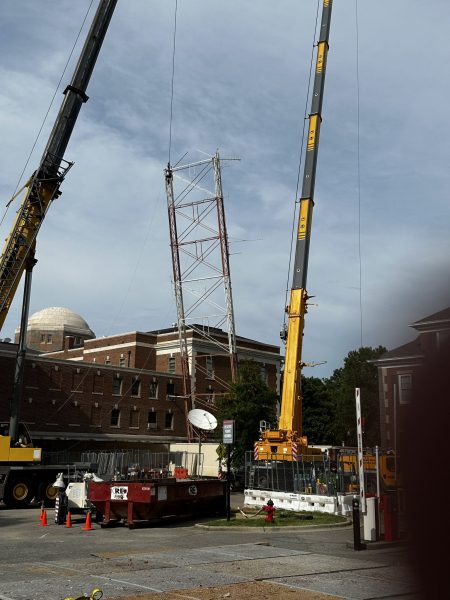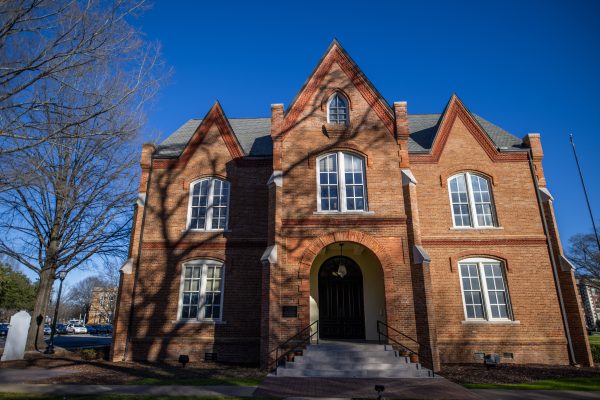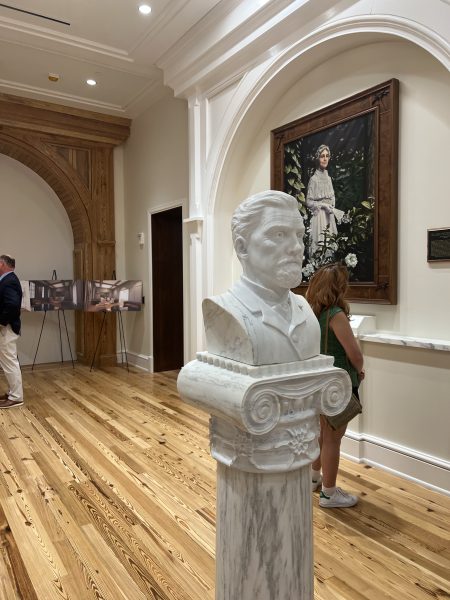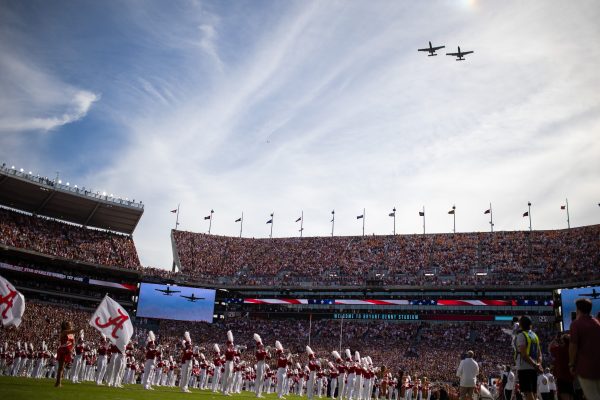A conversation with Myron Pope: ‘Intentionality is key’ in student affairs work
February 17, 2020
In 1988 Myron Pope left Sweet Water, Alabama, a town with a current population of 241, to attend The University of Alabama. He recounted walking into an introductory chemistry course on his first day of classes as a freshman.
“There were 350 people in that class,” Pope said. “Comparing that with my hometown felt like a huge culture shock.”
The University’s student body has doubled in size since his graduation, but he claims the culture and the feeling he has when walking on campus is the same.
More than twenty years later, Pope has been selected as the new vice president for student life (VPSL) to fill a position left open after the resignation of David Grady on July 26. Kathleen Cramer will maintain the role of interim VPSL until Pope’s arrival on May 4.
“As an alumnus of the University, Pope brings both a wealth of knowledge and leadership in higher education and a very special personal perspective to our administrative team,” said University of Alabama President Stuart R. Bell in a UA News release on Feb. 14. “He will be a tremendous asset to our students and the campus community.”
Pope earned his Bachelor of Arts in history followed by a Master of Arts and Doctor of Education in higher education administration from the Capstone.
During his time as a graduate student at the University, Pope was the primary liaison to the division of student affairs and coordinated all minority and multicultural programs. As a graduate assistant in the office of student life, he served as an advisor for the National Association for the Advancement of Colored People (NAACP), African American Association (AAA), and Pan-Greek Council.
Cramer, the current interim VPSL, was his supervisor in this role.
“[Cramer] was my first exposure to student life as a whole,” Pope said. “Throughout my career, she has been a mentor, and she’s been a good friend.”
Pope also pointed to Ross Palmer, a member of the board of advisors in the college of education, along with other individuals in the department who he has maintained strong relationships with over the years.
While a member of Phi Beta Sigma fraternity at the University, Pope explored the relationship between Greek life and the African American experience on campus as part of his coursework.
When Pope visited campus in January to deliver a presentation as one of five candidates vying for the VPSL position, he said that the University’s expansion in size has created a more diverse community, entirely different from the one he knew as a student.
He was further involved on campus through his experience as a student-athlete. Pope was a member of the football team, following coach Homer Smith’s encouragement to walk-on, winning two SEC championships and one national championship.
Harrison Adams, SGA president and one of two students included on the VPSL search committee, pointed to Pope’s familiarity with the University experience as a student on its campus as a sign of his preparedness to take on the role.
“He was looking to students throughout all our conversations,” Adams said in reference to his interactions with Pope during the search process. “He steered the conversations back to how it could impact students. He’s someone who, throughout his career, has made sure students are at the forefront.”
Adams said he feels confident SGA and the rest of the student body will have a great relationship with Pope.
As Pope’s experience as a student at the University drew to a close, two faculty positions within his program became available. While staying in Tuscaloosa was an end goal, a mentor of his encouraged him to gain experience beyond campus first.
“Well that’s what I did,” Pope said. “What started off as two or three years ended up being twenty.”
Pope has spent the last 16 years at the University of Central Oklahoma (UCO), most recently serving as the vice president of student affairs.
Challenges with respect to diversity, equity and inclusion were present during Pope’s time as a student at UA, and he recognized similar patterns upon arriving at UCO. He worked to combat the long-standing issues he observed through the implementation of a range of programs.
At UCO, Pope collaborated with the provost to create Project Persist, a program designed to improve retention for students who fell into categories traditionally indicative of lower retention rates. The first group of students to complete the program performed at a level ten percentage points higher than their peers.
UA’s most recent available 2-year retention rates are 87.9% and 3-year retention rates are 79.9%.
Pope also led efforts to increase the diversity of UCO’s student body through recruitment and retention efforts. Of UCO’s current student population, 42% are considered ethnic minorities – compared to about 20% at the Capstone – while 46% are considered first-generation college students and 38% are Pell Grant recipients.
Overseeing the implementation of the Black Male Summit and Black Male Initiative programs to improve the success rates of this demographic on campus, developing a model of integrated health care that addressed counseling services and the student health center, and leading a systematic effort to support transfer students are all part of his efforts to address diversity, equity and inclusion efforts at UCO.
“Overall, intentionality is key in the work we do in student affairs,” Pope said. “You have to be very intentional in terms of shaping the environment.”
As a leader, Pope is a firm believer in assessing an environment before making any immediate, drastic decisions rather than bringing in a preconceived plan based on third-party information.
“Obviously there are going to be some low-hanging fruit,” Pope said. “I will certainly try to expedite those situations, but overall… I want to gain a sense of what’s truly going on before I make any decisions.”

